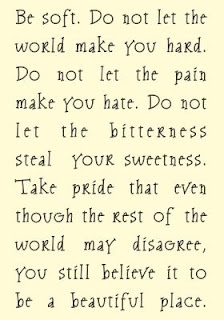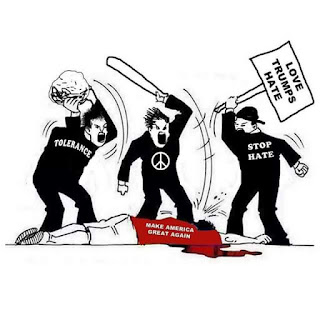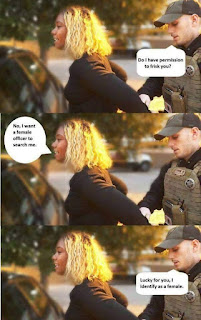written by Eileen Stachowsky and Christina Stucker-Gassi
Thursday October 27, 2016
We want to make one thing clear, the Trans-Pacific Partnership has nothing to do with national security. It’s an agreement written by corporate lawyers to support multinational corporations and suppress the sovereignty of the U.S. government and 11 other signatory nations.
The partnership is not, as Ohio Gov. John Kasich wrote in a recent op-ed that appeared in the Statesman (Oct. 13), a mechanism to keep the U.S. an “undisputed global leader.” It is not meant to keep the U.S. one step ahead of Russia and China. Kasich’s op-ed distracts from the burden the partnership will place on the shoulders of overworked and underpaid American farmers.
The agreement was hatched behind closed doors by government negotiators and 500 advisers representing corporate interests while the public, press and members of Congress were left out. It would grant thousands of corporations unprecedented new rights to sue the U.S. government before a panel of corporate lawyers. This panel can award unlimited damages — paid by American taxpayers — when corporations claim U.S., state, local or national policies violate their “future potential profits.”
As board members of the Idaho Organization of Resource Councils, a grass-roots organization represented by family farmers and consumers, we have three main concerns:
▪ The agreement would allow foreign companies to challenge the U.S. if they feel that a local law — such as those for factory farms, food safety or fair labor — threatens their profits. This hurts our ability to take local democratic action to protect our food and water.
▪ Past trade deals have failed to deliver on promises of new export markets that benefit U.S. farmers. Any export gains benefit the companies that buy, process, and ship raw agricultural commodities, not farmers themselves. Meanwhile, U.S. farmers will face a surge of low-priced agricultural imports, especially cattle producers and dairy farmers who are already facing low prices.
▪ The partnership would flood our grocery stores with unsafe food imports from countries with much lower health and safety standards, environmental regulations and labor laws.
The corporate interests in favor of this bad trade deal are pushing for a decision after the election, during the lame duck session, when members of Congress are least accountable to their constituents. John Kasich is helping lead this effort. He’s been tapped as the conservative voice to get votes for the trade deal in rural parts of the country. We need to fight against this effort, and ensure that Idaho’s members of Congress vote against the agreement when it appears in the lame duck session.
The partnership threatens family farms and rural communities right here in Idaho, and is less of a trade deal and more of a corporate giveaway. It’s a corporate-driven effort to gain control of more international markets and supersede the U.S. rule of law when regulations interfere with profits. We urge Idaho’s members of Congress to publicly oppose the Trans-Pacific Partnership , and to do it before the Nov. 8 election.
Eileen Stachowski volunteers as a board member of the Idaho Organization of Resource Councils and works to improve access to local fruits and vegetables to underserved Idaho communities. Christina Stucker-Gassi serves as a volunteer board member of the councils and advocates for better representation of small Idaho farmers. They are co-chairs of the group’s Ag and Food Task Force.
MarketWatch, USA
Obama vows to push for TPP in lame-duck sessionwritten by Greg RobbAugust 2, 2016
President Barack Obama on Tuesday said he looked forward to the effort to pass the Trans-Pacific Partnershi[p after the dust settles from the November presidential election and said analysts shouldn’t conclude the fight is over despite recent rhetoric on the campaign trail.
“Hopefully after the election is over and the dust settles, there will be more attention to the actual facts behind the deal and it won’t just be a political…football,” Obama said during a joint press conference with Singapore’s Prime Minister Lee Hsien Loong.
Obama said he has been able to pass critical legislation over his two terms in office.
“We’ve got a pretty good record of getting stuff done when I think it is important,” he said.
“People said we weren’t going to get the trade authority to even present this before Congress and somehow we muddled through and got it done and I intend to do the same with the actual agreement,” the president said.
Analysts said chances of passage of the TPP deal had dimmed in the wake of the two parties’ political conventions. The platforms of both parties included anti-TPP language.
Breitbart News, USA
written by Kevin Kearns
November 5, 2015
The text of the Trans-Pacific Partnership (TPP) free trade agreement is finally public, after years of President Obama’s secret negotiations and a refusal to share the text openly with Congress and the American people.
Unsurprisingly, the document is full of special deals for various U.S. trading partners, foreign corporations, and multinational U.S. businesses.
The TPP is anything but the free trade agreement it purports to be. The use of the term “free trade,” however, is both a smokescreen to conceal what it really contains and a codeword designed in part to attract the support of Congressional Republicans who lurch zombie-like to support anything labeled free trade, without understanding or even examining the details.
The top Obama Administration trade negotiator, Michael Froman, admitted as much when he insisted the deal cannot be re-negotiated, particularly over the lax rules on importing foreign-made autos and auto parts into the United States.
Apparently, one of America’s biggest economic problems is that Toyota does not sell enough cars and trucks here, and thus does not displace enough American jobs. The TPP deal allows Toyota a special concession to keep its global supply chain intact. TPP lowers the already too low NAFTA parts content standard, and permits Toyota to export vehicles to the United States that contain a large percentage of parts produced in non-TPP countries. And so, other Asian countries such as China, who are not even TPP partners are beneficiaries. Hard to believe, right?
U.S. auto makers and Congressional Democrats are unhappy with the concession and want it renegotiated. But according to Froman, “Here we have 12 countries, half of whom we already have free trade agreements with, where every issue is tied to every other issue. You pull the string out on one of these issues and you unravel the whole thing.” Thus Froman admits that the TPP deal is shot through with favoritism and crony arrangements…but it can’t be altered.
A real free-trade deal could be written on a single sheet of paper, with commitments to remove all tariffs and non-tariff barriers of any kind — including the removal of Value Added Taxes (VATs) applied to American exports at the port of entry — and pledges to refrain from the currency manipulation that cheapens and subsidizes the cost of foreign exports. But is the TPP one page — or even two? No, it contains thousands of pages and 30 chapters, only a few of which deal with tariff reduction.
The other chapters deal with rules and regulations for all manner of things not directly related to trade. For example, there are labor and environmental chapters hailed by President Obama as the “most progressive ever.”
But the big problem, whether one is for or against these chapters in principal, is that the president is deceiving us. These chapters are completely unenforceable. Are we really going to have a fleet of labor rights and environmental inspectors cruising around Vietnam, checking to make sure that every last factory is being fair to its workers and not polluting? Or tramping through the jungles of Malaysia to make sure that the government has put an end to the human trafficking and forced labor camps? No, it’s just not humanly possible.
Incidentally, there are two major missed opportunities within the TPP. And these have to do with the United States not using a Value Added Tax (VAT) and not manipulating its currency. Froman claims to have cut 18,000 tariffs in the TPP, but he has completely neglected the most significant tariff of all — foreign VAT taxation. All of the other TPP countries (except tiny Brunei) utilize a VAT tax system. This is a major trade barrier that imposes a direct tax on U.S. exports, but it is completely unaddressed in the TPP.
As for currency manipulation, the dollar is the world’s reserve currency and is freely traded in markets throughout the world. However, a significant number of TPP countries manipulate their currencies to give their goods a competitive advantage over American products.
But in the TPP, there are only side agreements to discuss currency manipulation via reporting requirements and consultative mechanisms. What these side deals mean is that a country can continue to intervene in currency markets, and then the U.S. can discuss the matter — without the ability to do anything about it. That is not a concession or an “extremely meaningful” accomplishment, as Froman has said. It is a surrender — at a time when the U.S. could have addressed the problem.
The TPP is being touted as giving a big boost to the American economy. That’s the rationale for doing the deal in the first place, right?
But there is no economic study or model that shows any big net benefit to the United States. There is one Peterson Institute study, cited by the U.S. Trade Representative, that shows a minimal 0.4 percent gain for the American economy by 2025. That’s hardly enough to start reducing our immense and growing $18 trillion national debt. And two U.S. Department of Agriculture studies show no net gain in agriculture from the TPP. Why sign the agreement if it doesn’t help with the national debt? Two words: Special Interests.
Ultimately, the TPP is a complex series of rules and regulations intended to manage the economic relations between the 12 nations party to the agreement. And its meticulous design serves to benefit each country’s “national champion” companies and industries, with the big winners in the U.S. being the major Wall Street banks, insurance companies, and multinational manufacturer-outsourcers.
One big example of this complex hypocrisy: The TPP has, in addition to 30 main chapters, a total of 58 side agreements (called “side letters.”) And Japan alone possesses 14 of these side letters, with each one laying out special conditions for Japanese participation and special deals for Japanese economic sectors. Free trade? Hardly!
Republicans allegedly hate regulatory regimes — but apparently are okay with them if they are done on an international scale under the rubric of free trade. What’s wrong with this picture and party?
Kevin L. Kearns is president of the U.S. Business & Industry Council (USBIC), a national business organization advocating for domestic U.S. manufacturers since 1933.






































No comments:
Post a Comment